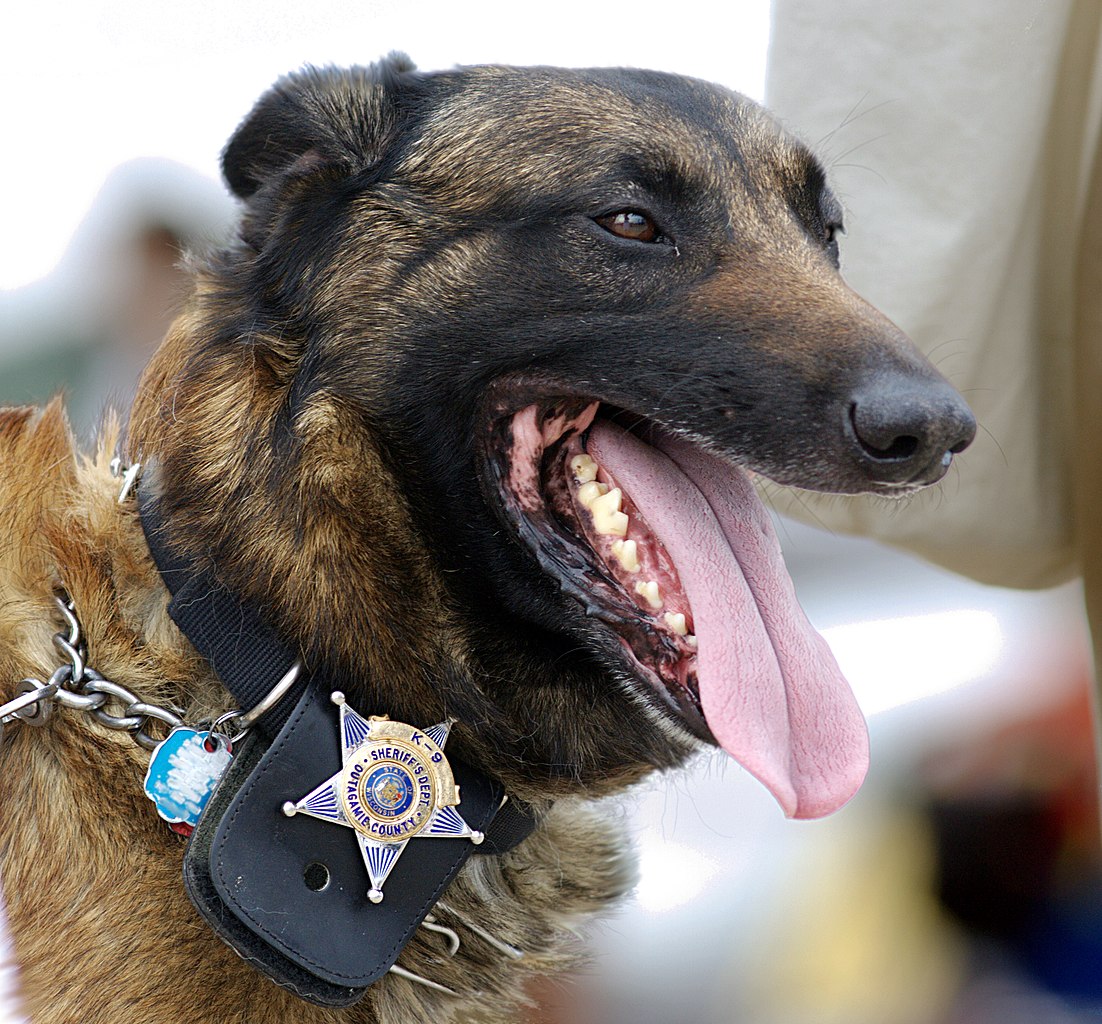RICHMOND, Va. (CN) — Legislators on Tuesday passed a bipartisan bill addressing Virginia's disproportionate reliance on attack-trained dogs in prisons.
The pushback followed Business Insider's investigatory report in the summer of 2023 documenting Virginia's use of attack canines. According to the investigation, of the 295 incidents between 2017 to 2022 where attack-trained dogs bit incarcerated people, Virginia accounted for 271 of the incidents. Arizona came in second with 15.
"The reports are absolutely appalling," the bill's patron, Delegate Holly Seibold, said in a committee meeting in January. "They are complete human rights violations."
Seibold's initial bill prohibited all patrol or security canine use in any state or local correctional facility. After adopting several amendments, the bill's scope is now narrower: It allows the use of attack dogs if immediately necessary to protect any prisoner or any officer or employee from the threat of severe bodily injury or death. With the prior approval of the warden or a supervisor, patrol or security canines can also be used to intervene in a fight between three or more prisoners.
The bill also requires the Virginia Department of Corrections to make public any policies regarding the use of canines; training requirements for both canines and their handlers; and the supervision of the officers or employees permitted to handle such canines. The bill prohibits the use of attack-trained dogs in juvenile facilities.
A canine team, consisting of a canine and a canine officer, is trained and certified in one of four disciplines: patrol, contraband detection, narcotic detection or man-trailing. The bill does not prohibit the use of detection canines.
Shawn Weneta, policy strategist for the Virginia American Civil Liberties Union and a former prisoner, said the dogs are a constant source of intimidation for inmates.
"They're constantly agitated, they're constantly barking," Weneta said in a phone interview. "You're really kind of scared to death that the K-9 handler is going to drop the leash, and you're not gonna be able to protect yourself."
Weneta said the dogs have attacked handlers and prison employees as well. He said the training standards are below par compared to the Virginia state police K-9 unit.
"There's no accreditation for it," Weneta said. "We went to the state police, and the state police were shocked."
The dogs are assigned full-time at Virginia's six high-security institutions, including River North Correctional Center, Red Onion State Prison, Sussex I State Prison and Sussex II State Prison.
Corey E. Johnson, a prisoner serving two life sentences for two murders, settled with the Virginia Department of Corrections after suffering a dog attack at Red Onion in 2020.
"Canines are effective both as a deterrent and, in instances where it is necessary for them to engage, that they are also effective at ending a violent incident while protecting staff safety," Red Onion warden at the time of Johnson's attack Jeffrey Kiser testified during court proceedings.
The nonprofit Rights Behind Bars has represented Virginia prisoners like Johnson and Curtis J. Garrett, who suffered an attack at Sussex II State Prison. Litigation Director for Rights Behind Bars Oren Nimni said in a phone interview that both prisoners were in submissive positions when attacked.
"They were attacked by attack dogs that guards were holding that bit down on their legs and arms for extended periods of time and caused significant damage," Nimni said. "Including that they need stitches, and one of them was permanently disabled afterward."
Handlers train the dogs to latch onto the prisoner's limbs until released by their human counterparts, Nimni explained, causing gruesome injuries.
"What that ends up leading to are pretty gruesome gashes and cuts, a lot of nerve damage," Nimni said.
"People have needed 10, 20, 30 stitches. They've been unable to use or effectively use their arms or legs that have been bit and sometimes get infections afterward because both of the jagged cuts that are hard to heal and because of whatever bacteria are in the dog's mouth themselves."
Correctional officers tend to use Tasers and peppery spray, tools Nimni said officers widely abuse but are better than canines.
"At least with the use of those tools, you have human decision-making that comes into play," Nimni said.
While 12 states authorize the use of attack dogs, only eight continue using them: Connecticut, Delaware, Indiana, Iowa, Massachusetts, New Jersey, Arizona and Virginia.
"We know that attack dogs are used, sometimes in some other states, but not as often, not as uniformly, and not in as many facilities as in Virginia," Nimni said.
Seibold referred to testimony from prisoners that detailed the use of racial slurs by correctional officers while they were suffering the attacks.
"The use of attack dogs also reflects a troubling chapter in Virginia's history," Seibold said. "Reminiscent of the use of dogs during the enslavement and the Jim Crow eras."
The bill now awaits Republican Governor Glenn Youngkin's approval. The Virginia Department of Corrections did not respond to requests for comment.
"The only reason we've ever been given by officials at the Virginia Department of Corrections in their depositions in some of the cases that we've taken are that people in prison are really scared of dogs," Nimni said. "That's not a good justification for using such a dangerous tool."
Subscribe to Closing Arguments
Sign up for new weekly newsletter Closing Arguments to get the latest about ongoing trials, major litigation and hot cases and rulings in courthouses around the U.S. and the world.









